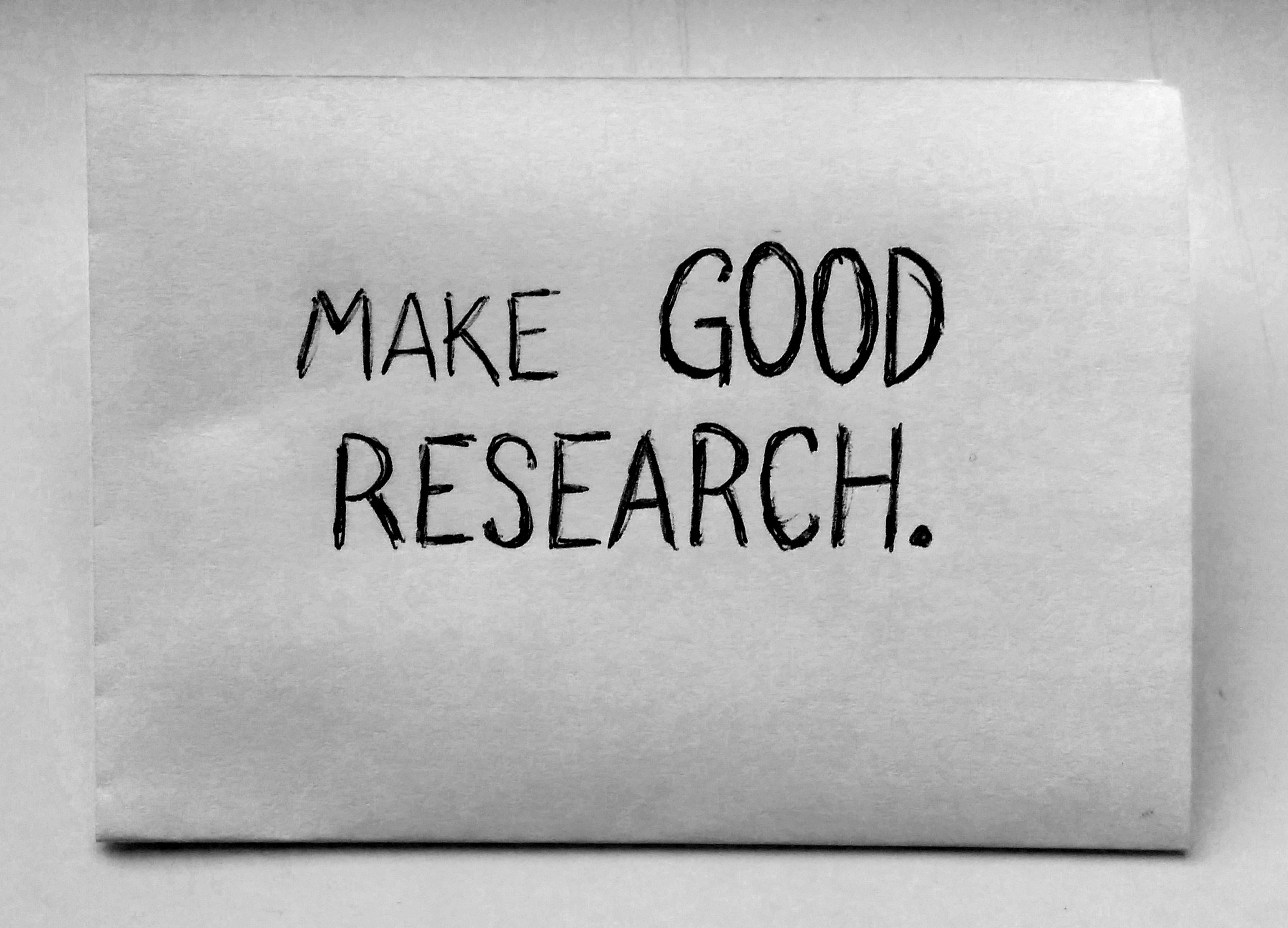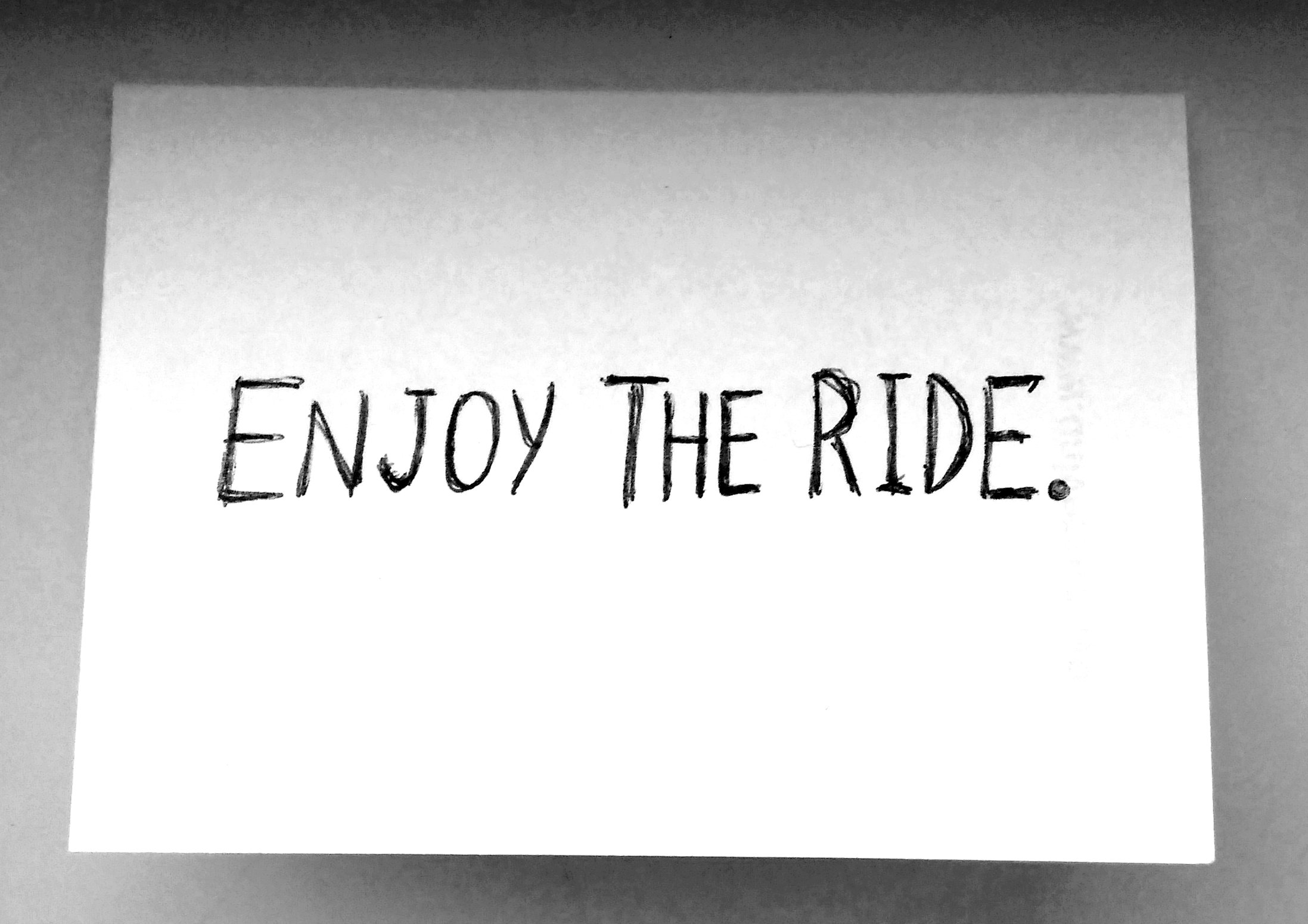POSTS
A Monday Mantra duo: The best advice about research that an artist never gave me
by Luis P. Prieto, - 6 minutes read - 1228 wordsWe tend to think of research as rational, mechanistic, sterile, orderly. However, there are many things about research that are random, chaotic, and require loads of creativity (writing papers being only one example among many). Thus, it sometimes makes sense to think about research as an art… and sometimes we can reuse tricks and advice from the arts, to make better science. In this brief post, I give you a couple of those, from a well-known artist and writer, in the form of two Monday Mantras.
After the initial, surprisingly smooth period of COVID-related lockdown, the lack of an exclusive workspace (i.e., one that is not at the same time kitchen, or bedroom, or living-room-sofa), the sheer amount of online meetings and hours staring at screens, the lack of a “normal” social life… were beginning to weigh on me. The end of the teaching semester, with its evaluations and other administrative stuff, were not helping either. From my recent conversations with PhD students, this seemed like a common ailment. This is maybe the busiest part of the year, and doing research in these hectic times can certainly seem like a drag (or just impossible). Yet, the other day I found something that lifted me up almost instantly – and it came from the strangest of places.
From an artist.
I came across this commencement speech given in 2012 at the University of the Arts, by writer Neil Gaiman1. I have long appreciated Neil’s writing (read Good Omens, if you like good, witty fantasy fiction), but I was surprised by how inspiring, funny and disarmingly honest he could be in person. And how relevant to research his advice for artists is.
The 20-minute speech is really worth the listen, if you have the time. Just substitute the word “art” with “research”, throughout his speech. If you don’t have the time to do that, just read on for my two main takeaways as a researcher…
“Make good art research”
This short mantra is the title of the speech. For several minutes, Gaiman encourages the audience (made up of aspiring artists) to just do what they went there to do: art (in their case), or research (in yours). Really, just do that. Make good research. Find out answers to questions humanity does not know the answer to yet. That’s what we signed up for, isn’t it?2 Then, just go do good research (or, the best research that you are able do), whatever that looks like in your field. Be a craftsman (or craftswoman) of research. Get lost in it, absorbed in the details of doing it well. As it happens to artists, many of the things we do as researchers are amenable to this experience of “flow”3, of getting lost in them: reading papers to discover the answers to questions we have, finding patterns in data, putting our ideas into writing…
As the speech proceeds, much of the advice Gaiman gives artists can also be translated easily to us researchers:
- Don’t do it for the money: ignore the economic side of things (the budgets, the project proposals, the salaries) as much as you can. Don’t just investigate a topic because “that’s where the money is”.
- Focus on developing your (research) skills, first by copying the rules and methods others use in your field. And, once you master those, find new ones, develop your own new methods and knowledge.
- The value of learning to write well, as a tool to clarify your own thinking.
- Make mistakes (as Gaiman puts it, “make amazing mistakes”). Not mistakes out of laziness or sloppiness, but rather those that come from you trying things you were not sure you could pull off, or things you were not sure were possible at all.
- Grow a thick skin. Even if you try to make the best out of each paper, not all of them will be accepted, some of them may never be published. And that’s OK. The published paper is not per se the ultimate good – the knowledge they contain is the goal. Maybe that knowledge is not needed or understood right now. Or maybe it was already known, but you didn’t know it. The skills and understanding you gained by writing the paper are themselves very important as well.
- The problems of success. Once you start “succeeding” at research, once you are able to finish some studies and publish them, the problems do not end. You will have to deal with impostor syndrome, you will have to learn to say no, you will have to avoid becoming a “professional emailer, hobbyist
writerresearcher”, as Gaiman puts it. - The awareness that, even if your goal is to do work that is good, delivered on time, and at the same time get along with the people you work with… very often getting two out of those three is enough to get you a job.
- If you are not sure about how to do good research, pretend you are a good researcher… and then behave like one (this one sounds silly, but I find it profoundly insightful).
… and the final, best piece of advice that he himself received from an even more successful artist (the writer Stephen King). The advice that Gaiman himself failed to follow for years and years, and which is worth its own separate mantra:
“Enjoy the ride”
Many people are aware that the PhD can be an “emotional rollercoaster” (best represented by this PhD comic). And it is also well known that we tend to focus on the negative: negative emotions like anxiety or stress; problems, setbacks we face… and there is plenty of talking about those dangers in this blog. Yet, there are also plenty of things to be enjoyed in a PhD: the focus on a single topic, the talking and collaborating with smart people from around the world, the sheer joy of learning new stuff (almost every day!), being able to contribute to something larger than oneself (like human knowledge), the belonging to a group (be it your own local research group or an international community)…
So, rather than being always worried about the next deadline, the next email, the next paper… why not recognize that this is actually really fun!? A positive frame of mind will boost your creativity, you energy, and your productivity4. These good times will never come back, trust me.
So. Enjoy. Them.
I hope these two pieces of advice help you, as they are helping me long after the PhD finished.
Do you have other research advice, mottos or mantras you find useful? What other positive sides you see in research that I forgot to mention? Let us know in the comments below!
Header image by Begoña Martínez
-
Kudos to Tim Ferriss’s Tools of Titans podcast for pointing me to this one. ↩︎
-
If you went into research with the idea of becoming rich, or having a really stable job, you might be in for a big surprise (sigh). ↩︎
-
Nakamura, J., & Csikszentmihalyi, M. (2014). The concept of flow. In Flow and the foundations of positive psychology (pp. 239–263). Retrieved from https://link.springer.com/chapter/10.1007/978-94-017-9088-8_16 ↩︎
-
Amabile, T., & Kramer, S. (2011). The progress principle: Using small wins to ignite joy, engagement, and creativity at work. Harvard Business Press. ↩︎

Luis P. Prieto
Luis P. is a Ramón y Cajal research fellow at the University of Valladolid (Spain), investigating learning technologies, especially learning analytics. He is also an avid learner about doctoral education and supervision, and he's the main author at the A Happy PhD blog.

